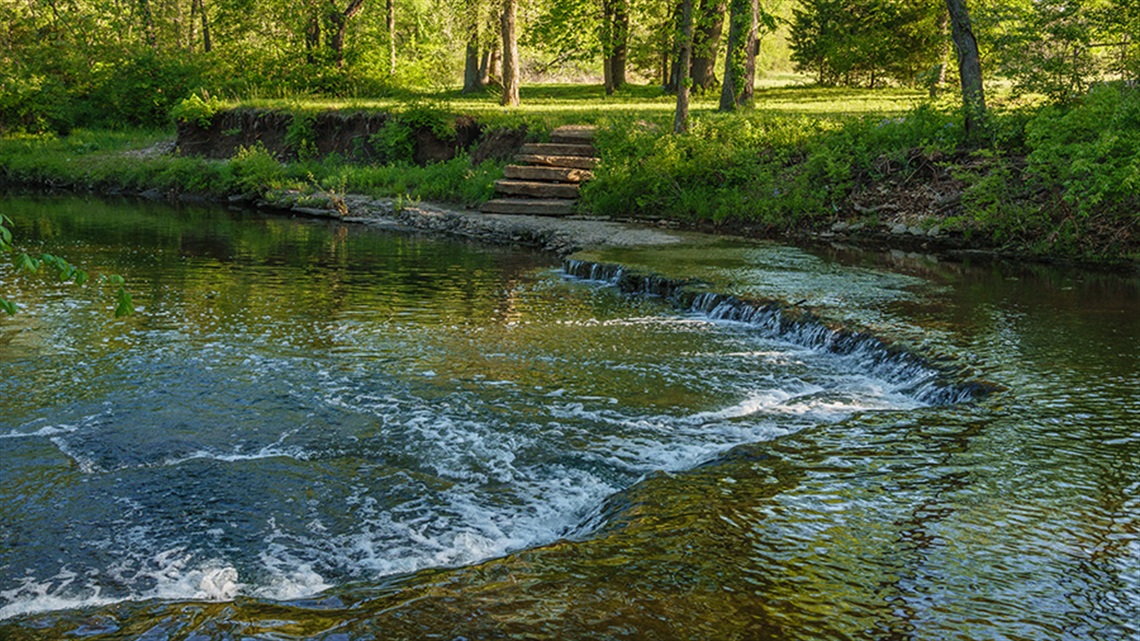Water Pollution

Discharging anything into the storm drain system is illegal. Lenexa’s storm drain system is a complex series of inlets and pipes that eventually drains to ponds, lakes and streams. The gutters on your street are not treated for pollution, so it’s vital to make sure only rain goes down the drain.
The Federal Clean Water Act requires municipalities in urban areas to control water pollution. In 2006, we adopted Article 4-5-J, which specifically prohibits the discharge or dumping of pollutants into our storm drain system. The ordinance protects the health and safety of residents, preserves the economic and ecological value of our water resources and complies with the city’s NPDES permit.
Prohibited pollutants include:
- trash
- yard waste
- lawn chemicals
- pet waste
- wastewater
- petroleum products
- cleaning products
- paint products
- hazardous waste
- sediment from exposed ground
Learn how to properly dispose of hazardous waste.
How trash and leaves affect storm drains
No matter where you live, there's a drainage system in place to help stormwater find its way to the river. Storm drains, ditches and culverts all are prone to blockage, and leaves and trash are the prime culprits.
Leaves and trash in storm drains can:
- alter drainage patterns by blocking flows and pipes, which can cause street flooding
- pollute and damage our streams and waterbodies
- cause downstream properties to flood
How you can help
- Pick up after your pet. Dogs living in Lenexa will deposit almost over 600,000 pounds of waste in one year! Each gram of dog waste contains more than 21 million bacteria, and when bacteria accumulate in our streams, ponds and lakes, it can make the water unsafe for fishing and other recreation. Pet waste is not a fertilizer. In fact, it actually carries diseases that are harmful to other animals and even humans. That’s why we need you and your best furry friend to be a part of the solution to help keep our water clean.
- Recycle used oil. Never place used motor oil in the trash or pour it down storm drains. Recycle used oil at a used oil collection facility, such as the Johnson County Hazardous Waste Facility.
- Protect our streams. Mowing close to a stream’s edge damages roots that hold soil in place, causing stream banks to erode. Avoid mowing within 10 to 25 feet from the edge of a stream and keep lawn clipping and leaf piles off banks.
- Sweep driveways and sidewalks clean. Remove debris and residue that could end up in a storm drain from concrete and paved areas around your house, including grass clippings, leaves and household chemicals.
- Wash vehicles the right way. Either wash your car at a car wash that filters the wastewater or wash your car in a grassy area. Avoid washing your car on a driveway or in the street, where soap and grease flow into storm drains.
- Don’t dump. Never put trash or yard waste down storm drains, on stream banks or in the street.
Report illegal dumping
If you notice a strange substance flowing into a storm drain inlet or see someone pouring something into a storm sewer, please report it in one of the following ways:
During business hours
After hours